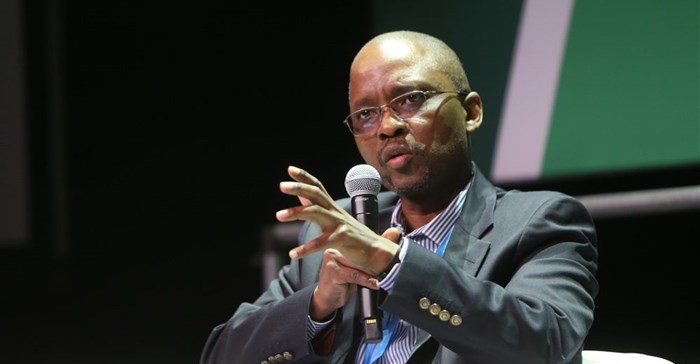
Top stories






More news


Marketing & Media
Ads are coming to AI. Does that really have to be such a bad thing?














Brown's refusal to approve the capital expenditure - despite the fact that the Eskom board had approved it - meant Matla was unable to meet its coal supply obligations to Eskom.
This was part of the scenario painted by Exxaro Resources CEO Mxolisi Mgojo in Parliament on Wednesday of how Eskom "unlawfully pushed Exxaro out of the coal supply space and contracted with third party/parties at a considerably higher cost to the fiscus".
These third parties included the Gupta-owned Optimum coal mine, a subsidiary of the family-owned Tegeta Exploration and Resources.
Mgojo told MPs Brown had said she would grant her approval to Exxaro's request only if Eskom could demonstrate how this investment would support the government's transformation imperatives, as the coal supply agreement with Matla was signed before 1994.
Mgojo told members of Parliament's public enterprises committee during its inquiry into the capture of Eskom that the minister's stance was "most surprising".
This was because the coal supply agreement had been amended and affirmed on numerous occasions after 1994, and because "Exxaro is one of the largest and foremost black-empowered mining companies in SA. In any event there are no such conditions (for transformation) provided for in our coal supply agreement with Eskom."
He also related that former Eskom executive Brian Molefe had not once during his tenure agreed to meet Exxaro, despite Exxaro being Eskom's biggest coal supplier.
Mgojo noted that Eskom's relationship with Exxaro had deteriorated "markedly" after Molefe took over as Eskom CEO.
He explained that the lack of capital investment in the Matla mine meant the mine was able to supply Eskom's Matla power station with only 7.5-million of the 10-million tons it was contractually obliged to supply.
This decrease in volume provided Eskom with the rationale to purchase coal "at exorbitant prices" from third parties.
"Since 2015, Eskom imports around 3.6-million tons of coal a year, which is delivered to the mine in approximately 120,000 truckloads per annum. This translates to on average over 400 truck-loads per day, when this coal could otherwise be delivered by conveyor belt directly from the Matla mine. It obviously also increases the delivered rand per ton cost of the coal.
"This means that assuming a price of R500 per ton, Eskom has paid more than an estimated R5bn for imported coal from third parties from 2015 to 2017," Mgojo said, adding that this inflated cost was impossible to justify when the provision of R1.8bn in capital investment would have secured cheaper coal supplies from Exxaro's Matla coal mine.
Exxaro is involved in litigation against Eskom in relation to what happened at both its Matla and Arnot mines.
With regard to the cost-plus Arnot mine, Mgojo explained how Eskom had caused the cost of coal from the mine to escalate, which had led to the termination of the mine's coal supply agreement in 2015.
This was because of Eskom's failure, since 2004, to acquire land to allow Exxaro to mine more coal in order to meet its annual supply commitment of 4.02-million tons to the Arnot power station.
The failure to expand production meant Exxaro was able to supply only 1.6-million tons a year, which significantly increased the cost per ton.
"This reduction in supply provided the rationale for Eskom to supplement its reserves with coal provided by third party commercial mines", namely Tegeta's Optimum coal mine.
Mgojo also claimed that Eskom "further limited Arnot mine's production capability by not providing capital for the replacement of critical equipment in terms of the mine's equipment replacement strategy".
Despite a written commitment by Eskom to continue with the coal supply agreement with Arnot mine, the utility announced in September 2015 that it would be terminated.
"Eskom's dramatic turnaround with respect to the termination date of the coal supply agreement occurred despite the fact that there are coal reserves of approximately 70-million tons that could still be economically mined. The termination of the coal supply agreement led to the closure of the Arnot mine and to the loss of around 1,500 jobs."
Mgojo also described what happened at its commercial Mafube mine, a joint venture between Exxaro and Anglo American that supplied Eskom with the cheapest coal in the country, transported to the Arnot power station by conveyor belt.
Despite this, Eskom terminated the coal supply agreement in November 2015.
"The termination of the coal supply agreement created a need for coal at the Arnot power station. This need for coal was fulfilled by third parties (namely Optimum coal mine) who continue to truck coal into Arnot power station," Mgojo said.
He also related similar developments at Exxaro's commercial mines - NBC, Leeuwpan and Grootgeluk. Eskom terminated the Leeuwpan coal supply agreement with Exxaro and replaced it with others, including with the Tegeta-owned Brakfontein mine at a higher price.